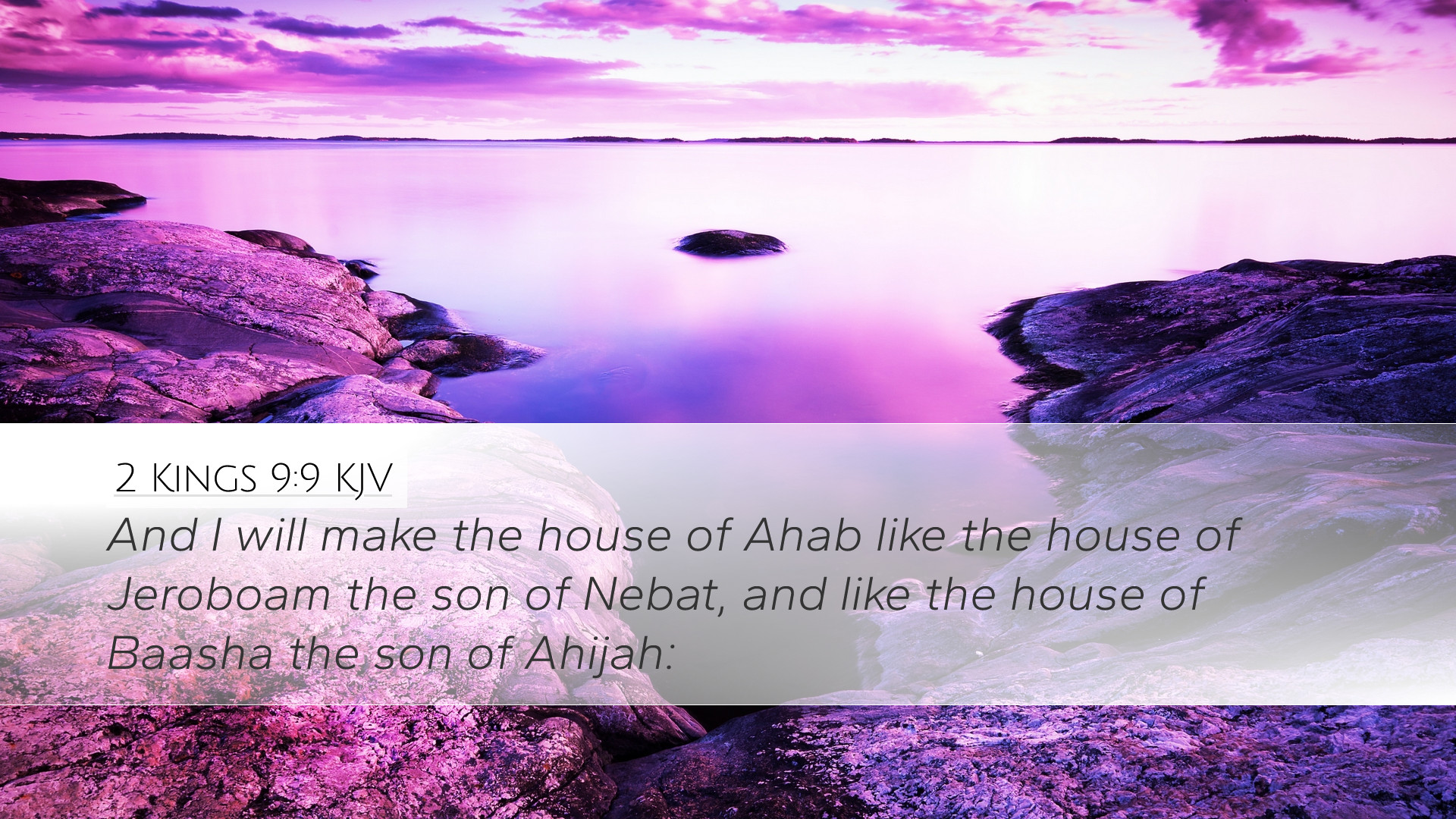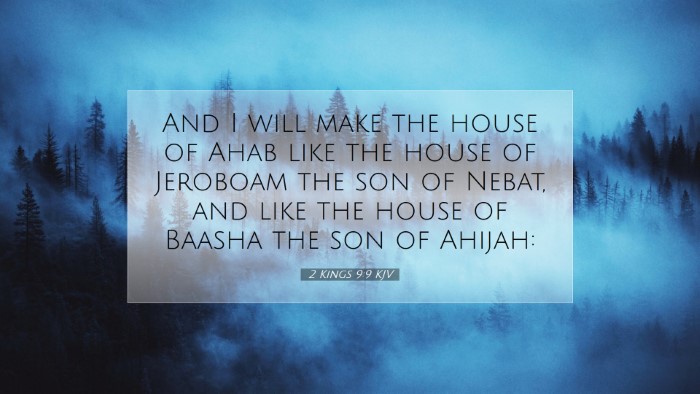Commentary on 2 Kings 9:9
Verse: "And the dead bodies of Ahab shall they fall as dung upon the face of the field in the portion of Jezreel; and there shall be none to bury them." (2 Kings 9:9)
Introduction
The verse of 2 Kings 9:9 is a pivotal moment in the narrative of the Old Testament, signifying the divine judgment pronounced against the house of Ahab. The importance of this event is underscored by its implications in biblical theology, judgments, and the covenantal relationship between God and Israel.
Matthew Henry’s Commentary
Matthew Henry provides insights into the dual themes of judgment and fulfillment of prophecy. He notes that Ahab's death and the manner of it fulfill Elijah's prophecy regarding his house, reflecting the unyielding justice of God. The metaphor of dying like 'dung' indicates not only the ignoble end of Ahab's lineage but also the thoroughness of their destruction.
- Divine Retribution: Henry emphasizes that this verse illustrates God's retribution towards wicked rulers who led His people astray.
- Symbolism of 'Dung': The comparison to dung signifies a complete and disgraceful end, contrasting the dignity and honor often associated with royal burials.
- Importance of Prophecy: Henry points to the prophetic aspect, highlighting that God's word through His prophets carries weight and certainty.
Albert Barnes’ Commentary
Albert Barnes elaborates on the theological implications of this verse, focusing on the geographical and cultural context of Jezreel. He notes that the field of Jezreel was marked by bloodshed, particularly due to the actions of Ahab and Jezebel.
- Location Significance: The mention of Jezreel is crucial; it is a site that embodies the sinful actions of Ahab. Thus, the judgment reflects both literal and symbolic connotations.
- No Burial: The lack of a burial signifies God's ultimate rejection of Ahab and his lineage, illustrating a further divine judgment and a loss of legacy.
- Historical Context: Barnes places this event within the broader context of Israel's history and the cyclical nature of sin and judgment throughout the monarchy.
Adam Clarke’s Commentary
Adam Clarke approaches the text with a focus on the rhetorical and moral dimensions of this judgment. He emphasizes the moral order that governs the universe and how the actions of individuals invite consequences.
- Moral Lesson: Clarke draws attention to the moral warning against the lives of those in power who act contrary to God's commandments.
- Nature of Death: He suggests that Ahab’s death is not just a personal tragedy but a collective consequence for his family's iniquities.
- God's Sovereignty: Clarke illustrates God’s sovereignty over nations and rulers, asserting that no one, regardless of their earthly power, can escape divine justice.
Theological Reflection
This verse encapsulates the essence of divine judgment and serves as a cautionary tale for leaders today. It reminds readers that leadership comes with responsibility and that actions contrary to God’s will lead to severe consequences.
- Judgment and Mercy: The stark portrayal of Ahab's downfall juxtaposes God's mercy, which invites repentance and restoration, against the backdrop of divine justice.
- Legacy and Impact: Ahab's legacy serves as a reminder to contemporary believers that one's actions impact future generations.
- Call to Righteousness: The verse calls for a return to righteousness, underscoring the need for integrity and faithfulness in leadership.
Conclusion
As we reflect on 2 Kings 9:9, it becomes clear that this verse is not merely an account of historical events but a profound statement on God's character, justice, and the serious implications of leadership. It urges pastors, theologians, and students of the Bible to engage deeply with the text, recognizing its relevance across ages.


